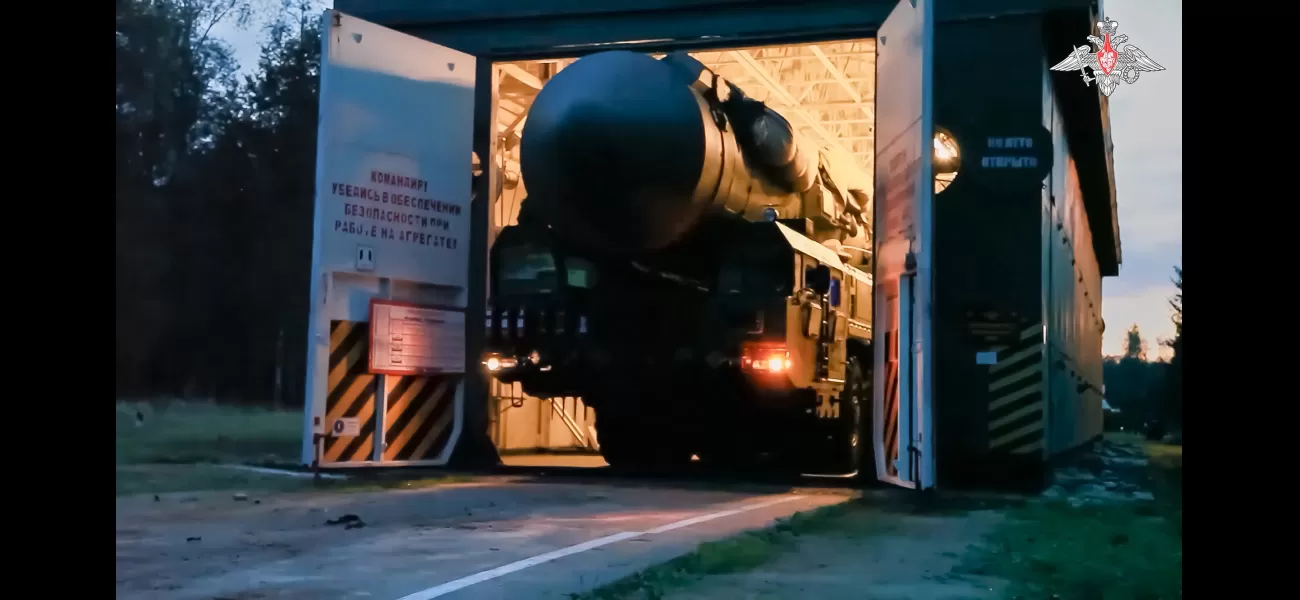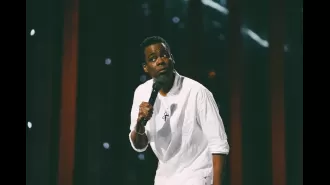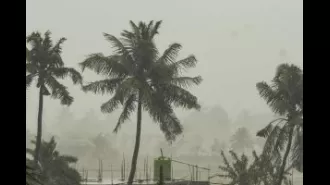What is Putin's 'nuclear doctrine' that he frequently references?
In 2022, Russia invaded Ukraine and its president, Vladimir Putin, has often threatened the West with their nuclear weapons.
July 30th 2024.

Since the year 2022, when Russia invaded Ukraine, tensions between President Vladimir Putin and other Kremlin leaders and the West have been high. The Russian government has frequently issued threats, specifically mentioning their nuclear arsenal, towards any country that tries to interfere or pose a threat to Russia and its people. On the first day of the war, Putin declared that any attempt to harm Russia would result in immediate and unprecedented consequences.
As the conflict between Russia and Ukraine has spanned over two and a half years, the West has provided Ukraine with billions of dollars worth of advanced weaponry, some of which have been used to strike Russian territory. This has only heightened the tension between the two sides. Despite more threats from the Kremlin, including the deployment of nuclear weapons near the Ukrainian border, no nuclear response has been made thus far.
When asked about what circumstances would lead to a nuclear response, Putin pointed to Russia's nuclear doctrine. He explained that if any actions threaten Russia's sovereignty and territorial integrity, they reserve the right to use all means at their disposal to defend themselves. However, some Russian officials are now urging for changes to be made to the doctrine that would lower the threshold for using nuclear weapons. Putin has stated that the document could be modified to adapt to the changing global situation.
So, what exactly is Russia's nuclear doctrine? Formally known as the "Basic Principles of State Policy on Nuclear Deterrence," it was signed by Putin in 2020 and outlines when Russia would use its vast nuclear arsenal. The document states that nuclear weapons are a means of deterrence and should only be used as a last resort. It also emphasizes that Russia is committed to reducing the nuclear threat and preventing conflicts that could lead to the use of nuclear weapons.
According to the doctrine, Russia would only use nuclear weapons in three specific situations: if nuclear or other weapons of mass destruction are used against them or their allies, if there is an attack with conventional weapons that threatens Russia's existence, or if they receive reliable information about the launch of ballistic missiles targeting their territory or their allies.
Up until now, no attacks have come close to crossing this threshold. Although the West has allowed Ukraine to use advanced weapons to strike Russian territory, these attacks have been limited in scope and do not pose an existential threat that would warrant a nuclear response. However, some Russian hawks have pointed to Ukrainian attacks on sensitive targets, such as air bases hosting nuclear-capable bombers, as well as recent raids on early warning radars, as potential triggers for the use of nuclear weapons.
There have been calls within Russia to revise the doctrine and make it more explicit and firm. Some suggest adding a provision that would allow Russia to strike first with nuclear weapons if their core national interests are at stake, such as in the conflict with Ukraine. Others fear that the current doctrine does not deter the West from escalating the conflict and that a direct clash between Russian and NATO militaries could lead to a global nuclear war.
At a recent international forum, experts and officials urged Putin to amend the doctrine to lower the threshold for using nuclear weapons. They argued that such a change would serve as a deterrent to Western aggression and help maintain peace. Putin responded cautiously, stating that he currently sees no immediate threat that would warrant the use of nuclear weapons, but he did not rule out the possibility of revising the policy in the future.
The need to modify the doctrine is driven by concerns about the West's potential deployment of low-yield nuclear weapons. Putin expressed awareness of discussions within the US about deploying such weapons, which some argue are necessary to counter Russian threats, while others fear they could increase the risk of nuclear war. Putin stated that Russia is closely monitoring these developments and will take appropriate measures to protect their interests.
In conclusion, while the Russian government has frequently threatened to use their nuclear arsenal in response to any aggression against their country, there have been no nuclear responses thus far. However, with the ongoing conflict between Russia and Ukraine and discussions about low-yield nuclear weapons in the West, the Kremlin is considering revising their nuclear doctrine to adapt to the ever-changing global situation.
As the conflict between Russia and Ukraine has spanned over two and a half years, the West has provided Ukraine with billions of dollars worth of advanced weaponry, some of which have been used to strike Russian territory. This has only heightened the tension between the two sides. Despite more threats from the Kremlin, including the deployment of nuclear weapons near the Ukrainian border, no nuclear response has been made thus far.
When asked about what circumstances would lead to a nuclear response, Putin pointed to Russia's nuclear doctrine. He explained that if any actions threaten Russia's sovereignty and territorial integrity, they reserve the right to use all means at their disposal to defend themselves. However, some Russian officials are now urging for changes to be made to the doctrine that would lower the threshold for using nuclear weapons. Putin has stated that the document could be modified to adapt to the changing global situation.
So, what exactly is Russia's nuclear doctrine? Formally known as the "Basic Principles of State Policy on Nuclear Deterrence," it was signed by Putin in 2020 and outlines when Russia would use its vast nuclear arsenal. The document states that nuclear weapons are a means of deterrence and should only be used as a last resort. It also emphasizes that Russia is committed to reducing the nuclear threat and preventing conflicts that could lead to the use of nuclear weapons.
According to the doctrine, Russia would only use nuclear weapons in three specific situations: if nuclear or other weapons of mass destruction are used against them or their allies, if there is an attack with conventional weapons that threatens Russia's existence, or if they receive reliable information about the launch of ballistic missiles targeting their territory or their allies.
Up until now, no attacks have come close to crossing this threshold. Although the West has allowed Ukraine to use advanced weapons to strike Russian territory, these attacks have been limited in scope and do not pose an existential threat that would warrant a nuclear response. However, some Russian hawks have pointed to Ukrainian attacks on sensitive targets, such as air bases hosting nuclear-capable bombers, as well as recent raids on early warning radars, as potential triggers for the use of nuclear weapons.
There have been calls within Russia to revise the doctrine and make it more explicit and firm. Some suggest adding a provision that would allow Russia to strike first with nuclear weapons if their core national interests are at stake, such as in the conflict with Ukraine. Others fear that the current doctrine does not deter the West from escalating the conflict and that a direct clash between Russian and NATO militaries could lead to a global nuclear war.
At a recent international forum, experts and officials urged Putin to amend the doctrine to lower the threshold for using nuclear weapons. They argued that such a change would serve as a deterrent to Western aggression and help maintain peace. Putin responded cautiously, stating that he currently sees no immediate threat that would warrant the use of nuclear weapons, but he did not rule out the possibility of revising the policy in the future.
The need to modify the doctrine is driven by concerns about the West's potential deployment of low-yield nuclear weapons. Putin expressed awareness of discussions within the US about deploying such weapons, which some argue are necessary to counter Russian threats, while others fear they could increase the risk of nuclear war. Putin stated that Russia is closely monitoring these developments and will take appropriate measures to protect their interests.
In conclusion, while the Russian government has frequently threatened to use their nuclear arsenal in response to any aggression against their country, there have been no nuclear responses thus far. However, with the ongoing conflict between Russia and Ukraine and discussions about low-yield nuclear weapons in the West, the Kremlin is considering revising their nuclear doctrine to adapt to the ever-changing global situation.
[This article has been trending online recently and has been generated with AI. Your feed is customized.]
[Generative AI is experimental.]
0
0
Submit Comment





